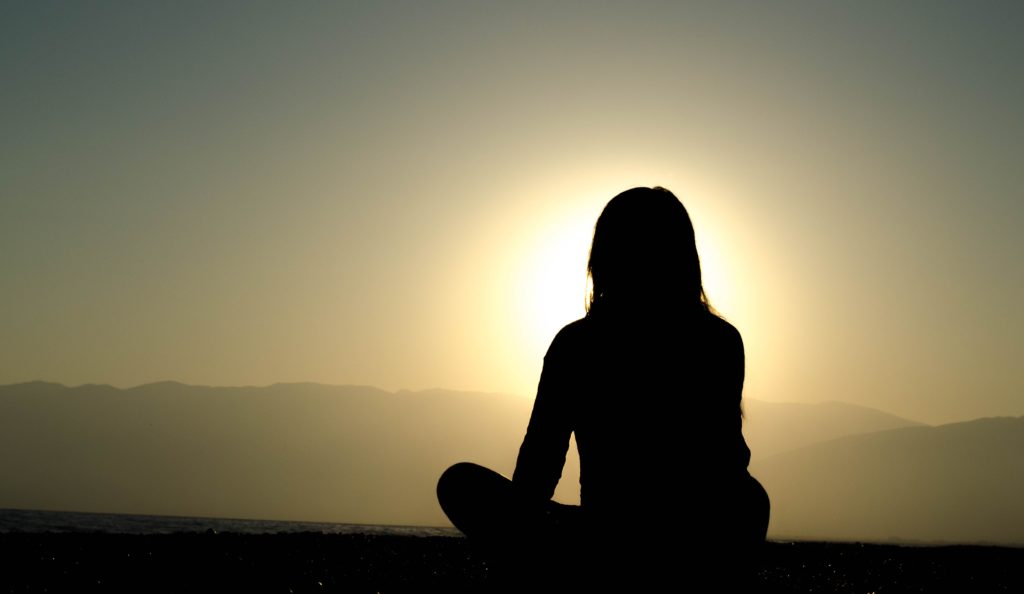
We are all struggling to stay present in a world that moves 100 miles an hour. How many of you sit down at the end of the night and ask, where did the day go, or as you are looking at making an appointment in the future realize that the month is almost over? Time moves so fast, and before we know it life is passing us by. How do we take the time to enjoy the life that we have? How do we actually sit and enjoy the small moments that give us joy? How do we live with curiosity? How do we combat the stress of our everyday lives, while bringing awareness to what we are doing, rather than living like robots, doing the mundane routine tasks that we do every day?
The word mindfulness is everywhere. We hear it in self-help books, we hear it from our therapists, it’s the new buzz word. But what does mindfulness really mean? How can it help us live in the moment, and enjoy the life that we have all around us? How does it help us with stress? And why is it a useful tool?
Mindfulness is accepting the present. It’s living in the moment. It is not labeling an event as good or bad, because when we label we are judging and creating struggle. Mindfulness is simply observing.
Think back to a time where you were fully in the moment. Maybe it was when you got that first new car, when you met your first love, when you walked the stage for graduation, or maybe the joy you felt when you accomplished something. Or perhaps you feel fully present when you go hiking, or at the lake, surrounded in peace. In those moments, you may remember the exact feelings you were experiencing, what you were wearing, and who you were with. You may remember the smells, the sounds, and the sensations your body felt. You were in the moment.
Now take a moment and think about if you were to live every day like that, in the moment, not thinking about 10,000 things at one time. You could concentrate on what was going on in front of you, in the moment, not thinking about the next thing, future scenarios, making assumptions, or judging what was happening then and there. You just are. No judgments, no assumptions, you are in yourself and in the moment.
This takes the stress away for a moment in time, mindfulness gives you the opportunity to enjoy, or reflect without labeling the experience. It allows for curiosity because we are saying “who knows what this experience will bring” because we are not looking for the answer when we are in the moment.
Children are a great example of living in the moment. They play, they say what they are feeling, they don’t have the capacity to label or judge their experiences. They simply are.
Is it realistic to live mindfully in every moment? Unfortunately no. We live in a fast-paced technology-driven world that consistently tests our ability to multitask. Mindfulness goes against what the world teaches us. Mindfulness is not multitasking, it’s simply being in the moment with one task at hand.
Mindfulness is a skill. It’s a skill that takes practice. So let’s give an example of how you can practice this skill.
Right now you are sitting at your computer reading this. As you continue to read, simply scan your body to see if you feel any tension. Maybe you feel a heaviness in your chest or a pit in your stomach. Or maybe you are relaxed. Simply notice and take a deep breath in, then out. Notice what you hear in the background. Maybe the sound of tv or music, maybe the sound of animals, or the clock ticking. Take notice as to how you’re feeling as you read this, any emotions that may bubble up. Notice any distractions that are occurring. Maybe you are so enthralled in this article that you notice nothing but yourself simply reading the words on the paper. Notice the peripheral vision, maybe take a moment to look around, what do you see, what colors, what smells. Notice what your body feels like as you sit or lay down, what do your clothes feel like on your skin, or maybe you notice the warmness of the laptop you are using or the hardness of the desk you are at. Simply just take note of your present experience.
Mindfulness is the act of fully participating in your experience, observing your experience, and describing your experience. When you practice mindfulness, you will notice that no other thought comes up. You are present in the experience. You are just being.
In ending, mindfulness is learning how to pay attention and focus on the here and now. Mindfulness is a tool that allows you to be more aware of your physical and emotional conditions without getting attached to the judgments you may place on yourself. Mindfulness practiced daily and continuously can give you control over your destructive feelings and to live in acceptance and a place of gratitude so you can experience more joy in your life.
Love, light, and peace,
Jamie Kruse
